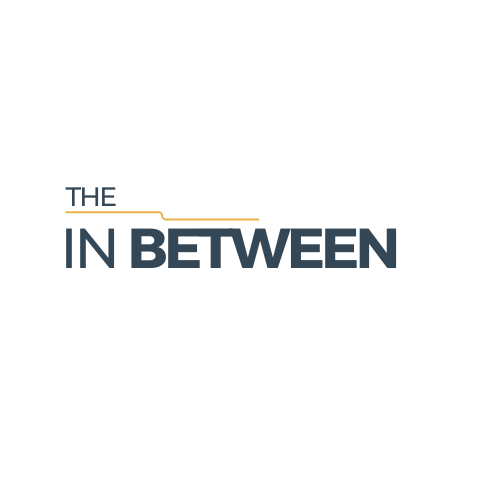What happens when your identity, vocation, and sense of purpose no longer align—and the roles you’ve been playing start to feel like they’re playing you?
In this episode of The In Between, I sat down with Hunter Mobley, a former pastor, practicing attorney, and Enneagram teacher who helps people recover their truest selves. We talk about inner transformation, why personality is not your true identity, and how slowing down might be the most courageous (and spiritual) thing you can do.
Hunter’s new book, Letting Go, Finding You, is part memoir, part map—a soulful guide to understanding your personality as both a gift and a covering. If you’re feeling stuck, navigating transition, or just wondering how to find your footing again, this conversation is a grounded, grace-filled invitation to go deeper.
In this episode, we talk about:
👉 Why your virtue is the opposite of your Enneagram number—and what that reveals about your soul
👉 How to discern your next step when you’re stuck or in transition
👉 What Enneagram misunderstandings keep people from using it as a spiritual tool
👉 The difference between ego-building and soul work
👉 Why the “in-between” might be your most teachable season yet
You Are Not Your Number: The Soul Beneath the Personality
One of the most powerful moments in our conversation came when Hunter said:
Your personality is the opposite of who you really are. It’s the covering—not the core.
Hunter walks through each of the nine Enneagram types, naming both the passion that blocks our growth and the virtue that points us back to our truest self. His approach is compassionate, non-pathologizing, and deeply spiritual.
The Enneagram doesn’t give you anything to go get—it offers you something to rediscover. The virtue is already inside you. It’s the image of God you already bear.
From Law to Pastoring to Teaching: A Nonlinear Path That Made Sense
Hunter’s story doesn’t follow a straight vocational path. He started as an attorney, pastored a church for six years, apprenticed under Suzanne Stabile as an Enneagram teacher, and now blends legal practice with spiritual teaching.
‘Way opens and way closes,’ he says, borrowing language from Quaker discernment. ‘My life hasn’t been linear. But somehow, all the pieces fit.’
What ties it all together? A heart for teaching. A desire to help people access transformation. And a willingness to let go of the need to please everyone else in order to show up more fully himself.
The Danger of Ego-Building in Ministry and Helping Professions
As a Type Two, Hunter’s impulse to help runs deep. But he’s honest about the shadow side:
It’s the alcoholic living above the bar. There’s always someone new to help, someone to rescue. If I’m not careful, I’ll use service as a drug.
The invitation, he says, is to hold personality more loosely—to notice when your wiring starts building ego rather than soul. And to practice transformation not just in what you do for others, but in how you show up for yourself.
Misconceptions About the Enneagram—Especially in the Church
Hunter names one reason the Enneagram gets pushback in Christian spaces:
It doesn’t just talk about personality. It assumes you have a soul. It points beyond the false self toward something eternal.
But he also shares how the Enneagram transcends any one tradition. It’s a tool that can accompany whatever faith story you bring—and invite you deeper into it.
You don’t have to adopt my theology. The Enneagram comes alongside whatever spiritual path you’re on and says: ‘Let’s look underneath.’
What to Do When You Feel Stuck or Disconnected from Purpose
When you’re stuck, Hunter encourages two things:
- Clearness Committees – A Quaker practice of gathering trusted voices to ask open, honest questions as you discern your next step. (No advice-giving allowed.)
- Slowing Down to Listen – Even if it’s uncomfortable.
We’re afraid of what we’ll meet in the silence. But if we don’t do inner work when we can, life will eventually force us to—and we won’t have the tools.
The Spiritual Invitation of Your Least-Used Center
Hunter shares how each Enneagram number has a repressed center of intelligence—thinking, feeling, or doing—that, when engaged, can become a surprising path to growth.
🧠 For 1s, 2s, and 6s: Engage deeper thinking.
💛 For 3s, 7s, and 8s: Make space for softer feeling.
💪 For 4s, 5s, and 9s: Step into intentional doing.
The underdeveloped center reveals what we’re lacking—and where the gold is hiding.
Flourishing Isn’t Performance—It’s Interior Freedom
When asked what flourishing looks like now, Hunter offered this:
For me as a Two, flourishing means letting go of the need to meet everyone’s expectations—and showing up in the ways that feel truest to me, regardless of how they’re received.
Whether you’re a ministry leader in transition, a helper who’s burned out, or someone navigating a season of disruption—Hunter’s story and work offer practical tools, spiritual insight, and a way forward that doesn’t bypass the soul.
Everything just changed, now what?
In a season of transition, it’s hard knowing what to do next. Finding Your Way to Flourishing is your free guide to crafting your Next Step Statement so you can move forward with clarity and confidence.
